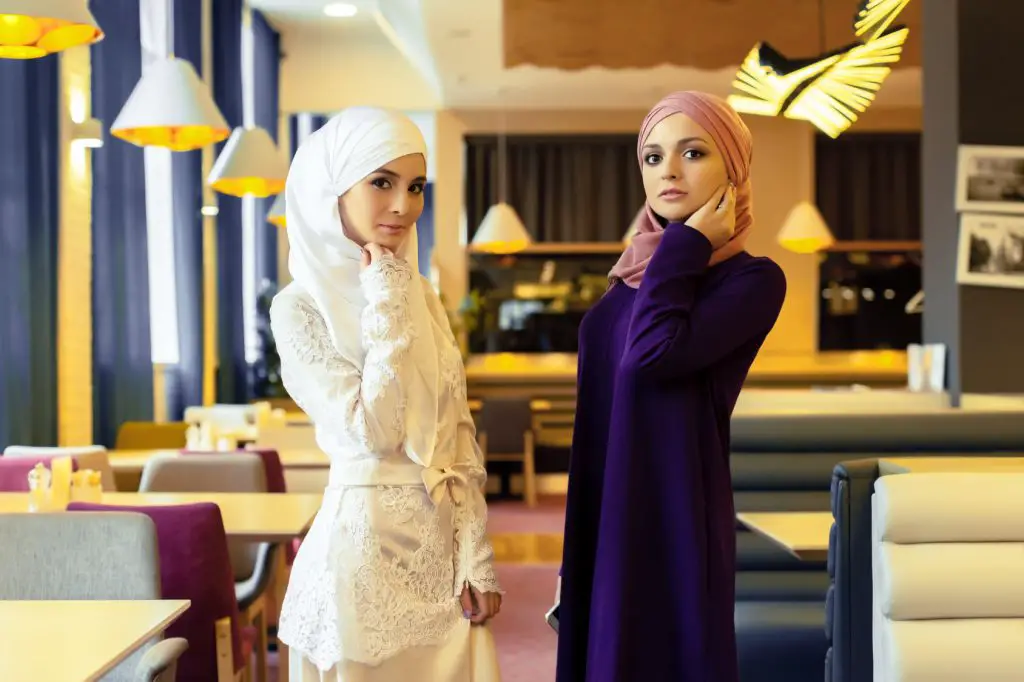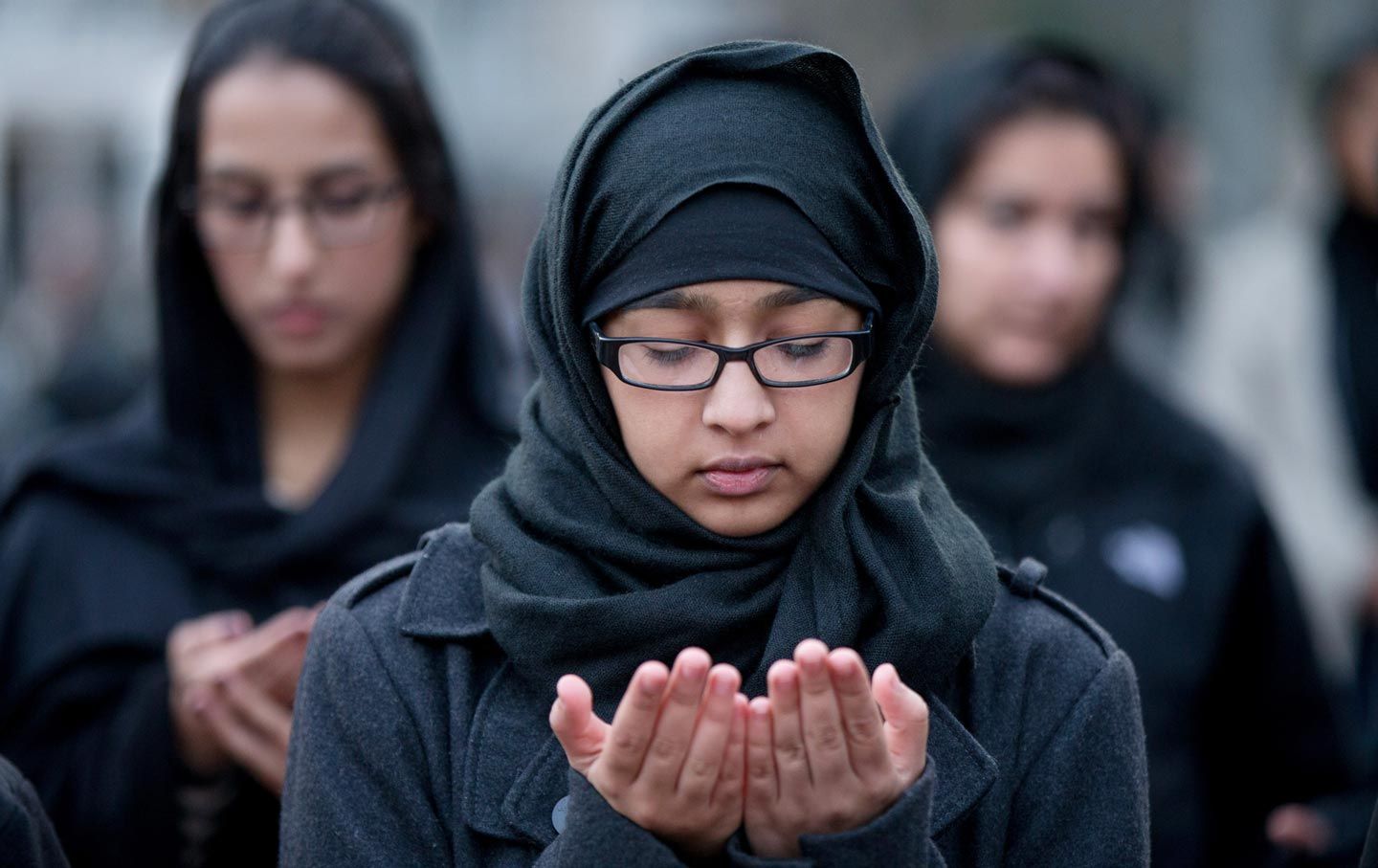On the first day of third grade in Lafayette, Louisiana, I had a realization: Everyone around me may be bound for eternal damnation. My teachers, my friends, my principal, the kids on the bus. In Sunday school at the local mosque, I was taught many things. The one that struck me hardest was that anyone who hadn’t declared the oneness of God and the validity of his last messenger could not enter paradise, no matter how pious they were. I wasn’t sure how to reconcile that fact. Candidly, I am still not sure how to reconcile it.
I was born to Muslim parents who wanted me to be a good Muslim and, for the most part, I was. The plethora of tests presented to me up until now did curve my path, though I never turned my back entirely on the deity that I had been taught reigned over the universe. I couldn’t. I still recall ending my conversation with a college interviewer about faith. (Not a recommended topic for college interviews, but humor me.) In regard to my spirituality at the time, I had difficulty knowing whether or not I truly “felt it.” Even when I went to Mecca and Medina — even when I prayed at the most sacred of sights in the world — I still wasn’t sure if I had “felt it.” What I was supposed to feel, I wasn’t even sure. But my interviewer told me something that stuck with me.
“When you truly feel the existence of a higher being, you’ll know it.”
Today, I can say with certainty that I can feel the existence of a higher being in every aspect of life, be it mundane or significant. Perhaps you can too. Perhaps you can’t, and it may be the case that you never will. But in such an interconnected and globalized world, and specifically in America — a place we’ve often called a “melting pot” that’s now boiling up to its edges — I have far more trouble reconciling what my place is in the middle of the divine and the temporal. And the more deliberately I ponder my place, the more difficult it becomes to put myself on the map.
I am of millennial age. I reluctantly accept the designation. Most of the people around me live secular lives. These days, especially, even when people acknowledge some kind of divine existence, they will rarely stand very tall in their declarations. The commonly used term is “spiritual” so as to not appear denominational. And it’s an understandable stance. In a recent episode of HBO’s “Silicon Valley,” Richard, the protagonist, accidentally mentions that another character is a Christian and the character is strangely upset by this. As a satire, the show brings light to how strange it is that in modern culture, especially in Silicon Valley and among young people, it seems taboo to be forthcoming with your religious beliefs.
While the banal aspects of Muslim life are often characterized as simple phrases such as “Does that have pork in it?” or “My parents are too strict to let me go out late at night,” the truly difficult parts of being a young Muslim are often the issues that are taught to be black and white early in our upbringings. How can it be that truly good people may be judged on their declaration of faith when I was given mine on a silver platter? Is this form of judgement in line with the core beliefs about fairness and justice I have attained as a human in this world? How can I tell my peers about my beliefs in a way that’s respectful to theirs? (This goes beyond religion.)

In isolation, we could all have our beliefs with absolutely no trepidations about others’. But even basic science and biology tell us that we are social creatures. Interaction with others feels like a basic need for everyone. So, in a society where all viewpoints are to be acknowledged whether historical or current, I’ve always had trouble understanding how black-and-white answers can exist, especially in the context of religion. I’ve searched for these answers my entire life, simply to bring peace to my own mind. I’ve searched only to eventually realize that life would hardly be worth living if these answers existed. Today, I see this sentiment echoed across all spectrums of life, not only those of religion or who have found life’s meaning.
In the words of Omar Saif Ghobash in his book, “Letters to a Young Muslim”: “Life is diverse. Living is to live with difference. Anyone telling you that difference should be stamped out is stamping out life. Those people insisting that there are black and white answers to the difficult questions are stamping out the diversity that is inherent in life.”
It’s a hard pill to swallow that I may never know if I ever truly felt it — that even in my final moments, I may be unable to fully comprehend the truth of existence. At this age it’s not easy to consider these things, as there are far more immediate concerns, such as the contents of my next meal or the need to do laundry. Although the thoughts that remain as the top waves of the oceans of our minds dictate our immediate actions, we should always try to find the time to understand our place in the world. Whether we find it in our conversations with others, through our travels inside and outside the country or in the books and various articles we read, the greatest joy in life is more often the hunt than the prize.
These days I try my best to celebrate the diversity of life despite the ongoing difficulty of being a religious person in an ever-more secular world. The best way I know how to get others to understand my faith is through my words, my actions and my willingness to understand those who are different than me. I plan to never stop asking questions, even if I have to answer them on my own.
















